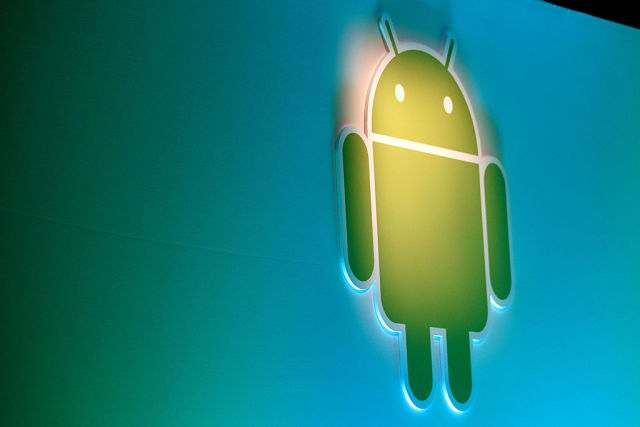
SAN FRANCISCO—Google attorney Robert Van Nest made his closing argument to a panel of jurors here today, asking them to clear Android of copyright infringement allegations as a matter of "fairness and fair use."
"This is a very important case, not only for Google but for innovation and technology in general," Van Nest told the jury. "What Google engineers did was nothing out of that mainstream. They built Android from scratch, using new Google technology, and adapted technology from open sources. Android was a remarkable thing, a brand-new platform for innovation."
Van Nest's hour-long closing argument, and his later rebuttal, was Google's final fusillade before this six-year-old lawsuit goes to the jury. Oracle has argued that Google's use of 37 Java APIs in Android infringes copyrights that Oracle acquired when it purchased Sun Microsystems. An appeals court has already found that APIs can indeed be copyrighted. Unless the ten-person jury empaneled in San Francisco finds that Google's use of APIs was "fair use," Oracle will win damages, and the company is hoping to ask for as much as $9 billion.
The Java language was "open and free," and the APIs "have always been treated by Sun as open and free, along with the language," Van Nest said. Android was a brand-new use for the Java APIs, "a use that no other company, before or since, has been able to achieve."
And Sun never complained about Android, he said. Oracle CEO Larry Ellison didn't, either—at first. "it wasn’t until later that Mr. Ellison changed his mind," said Van Nest. "It was after he had tried to use Java to build his own smartphone and failed to do it."
"Now we’re in a situation where Oracle, which had no investment in Android, took none of the risk—they want all the credit and a lot of the money," he said. "And that’s not fair."
Van Nest focused on four key witnesses: former Sun Microsystems CEO Jonathan Schwartz, former Google CEO Eric Schmidt, former Android chief Andy Rubin, and Alphabet CEO Larry Page. He pulled up Schwartz's picture first, and reminded the jurors that he didn't have any problem with Android.“It was completely—you know, it was fair," Van Nest said, quoting Schwartz's testimony to the jury. "They weren’t asking us to put our logo on it, and they weren’t asking us to call it Java or bless or endorse it.”
Then Van Nest moved to parry an attack he knows is coming from Oracle, which will give a closing statement immediately after him. Oracle is going to run through Google and Sun internal e-mails about how licensing was required, part of a failed negotiation between the companies that took place before Android was launched. It's a red herring, he told the jury.
"That has nothing to do with the Java API declarations," Van Nest said. "Those discussions happened much earlier," in 2005 and 2006.
Transformative Android
Android was a classic example of fair use, Van Nest said, linking evidence with the jury instructions. First, it was utterly transformative, he argued, noting that even Oracle's own expert witness teaches Android programming to his computer science students at Duke University.
Google engineers used APIs from Java SE, a product for desktops that was never intended for smartphones. The API declarations used were "purely functional," Van Nest said, another factor that favors fair use. Packages had names like java.io and java.security, while classes had names like getDateAndTime and ZipInputStream.
"Android has helped Java," Van Nest said. Developers can write programs for Android without learning a new language. He pointed to deposition testimony of an Oracle VP calling Android a "positive for the mobile phone market."
Van Nest completed the circle by noting that Google was following standard industry practice, another factor he urged the jury to consider as weighing in favor of fair use. "Every single computer programmer or scientist" that testified had an example of using Java APIs, including Apache Harmony and GNU Classpath.
"There was no hue and cry in 2007," when Google published Android's software development kit, along with all of the APIs used, new and old, he said. "As long as you write your own implementing code, that's fine. You're OK."
That's why Google wouldn't pay up when it was approached by Oracle in 2010. "We will not pay for code that we are not using, or license IP that we strongly believe we are not violating, and that you refuse to enumerate," Google said, quoting Google's response to Oracle CEO Safra Catz.
"Google's position then is the same as Google's position now," he said. "Android is a fair use of free and open API declarations that have been open for years. You can't come around, three, four, or five years later and say, we want to go back to the start and change everything. That's not fair, and that's not right."
Oracle will make its closing statement next, and the jury will begin deliberations after that. If the jury finds in Oracle's favor, the case will enter a separate damages phase.
More from the Oracle v. Google trial:
- Read the Ars Technica explainer on the trial's significance
- Jury selection took place on Monday, May 9
- Lawyers gave opening statements for Oracle and Google on May 10
- Ex-Google CEO Eric Schmidt testified on May 10 and 11
- Ex-Sun CEO Jonathan Schwartz told jurors he had no problem with Android on May 11
- Android chief Andy Rubin testified on Thursday May 12
- Top Android programmer Dan Bornstein testified on May 13 and May 16
- Google expert Owen Astrachan discussed APIs and fair use on May 16
- Oracle CEO Safra Catz testified on May 16 and May 17
- Sun's top Java architects and Oracle's expert spoke to the jury on May 17
- Sun's Java licensing execs, an Apache programmer, and an economist testified May 18
- Jurors saw Alphabet CEO Larry Page and Google's rebuttal case on May 19
reader comments
337